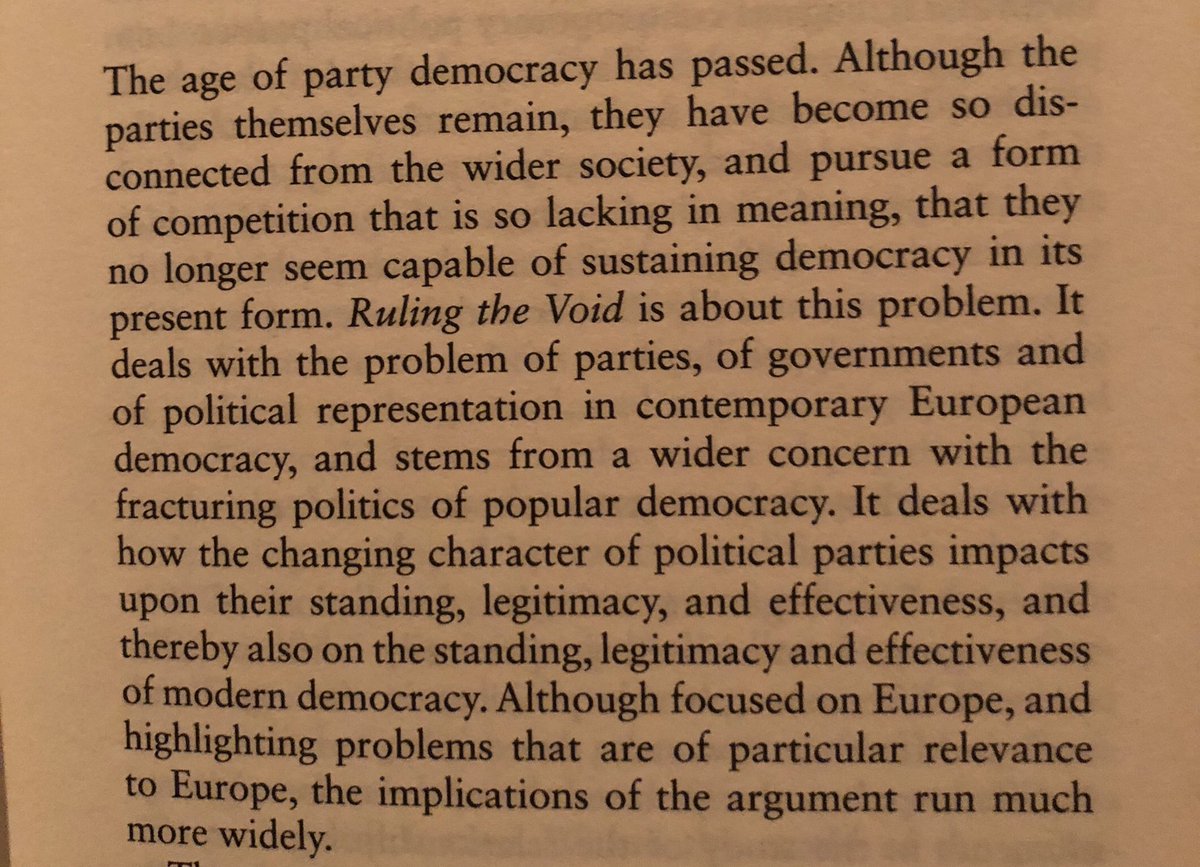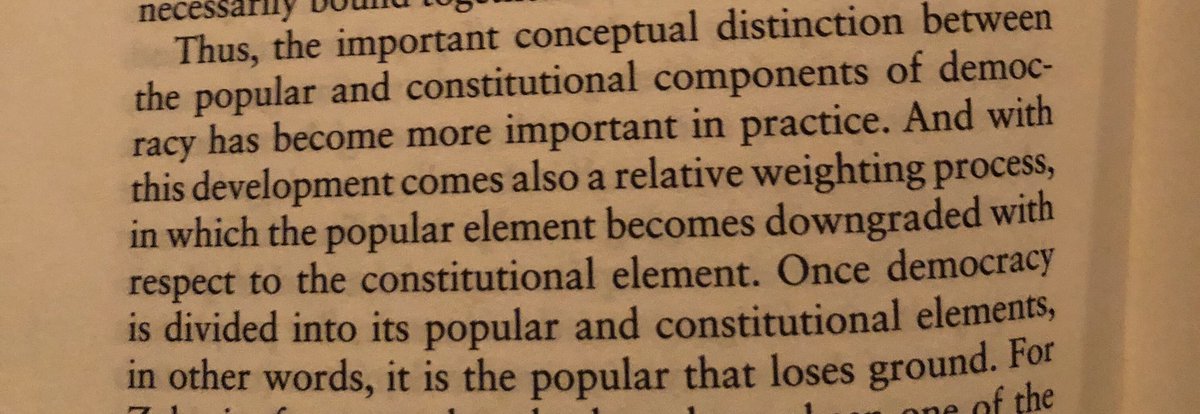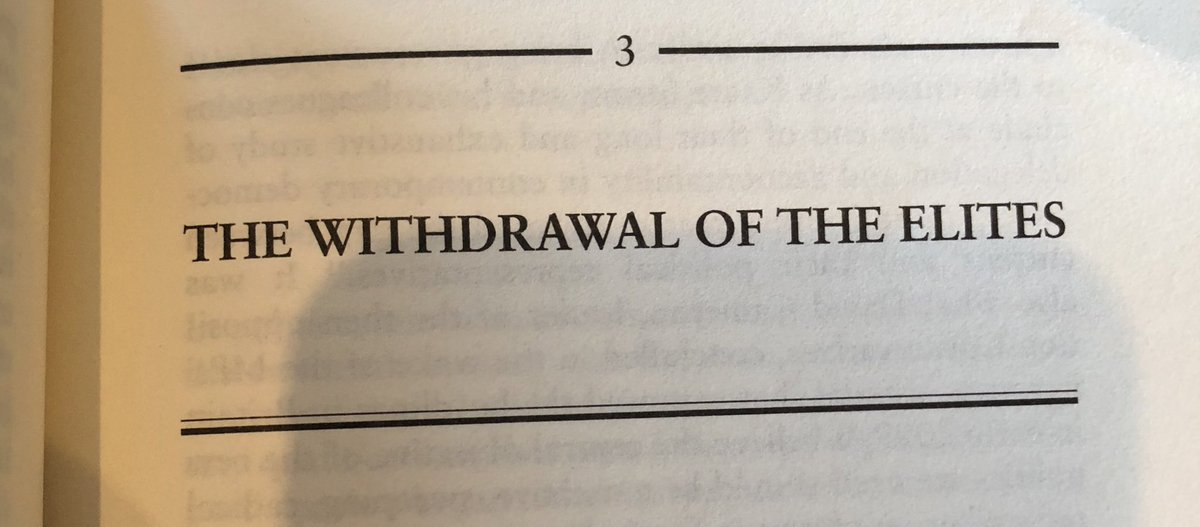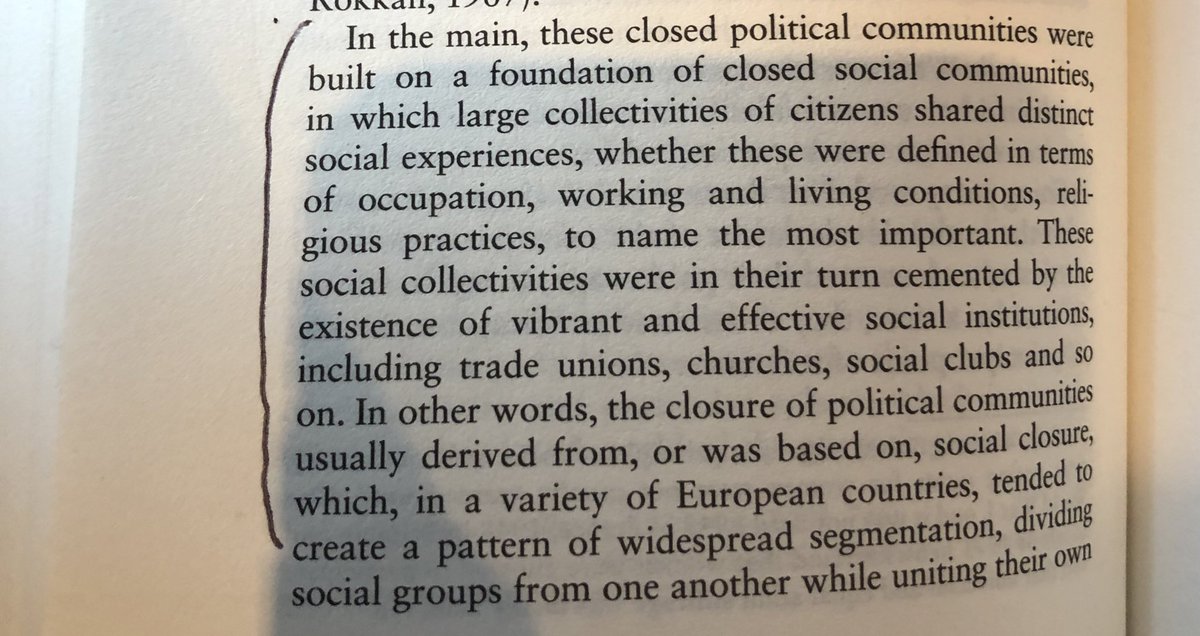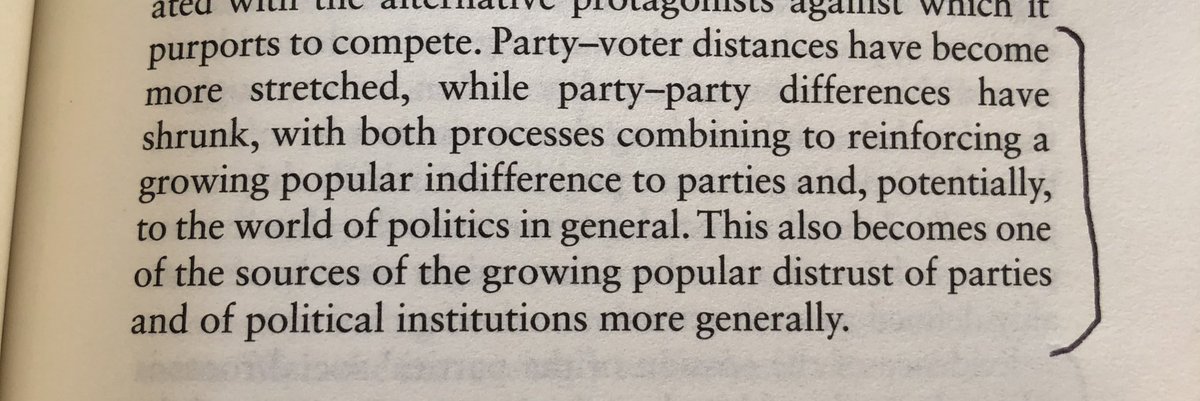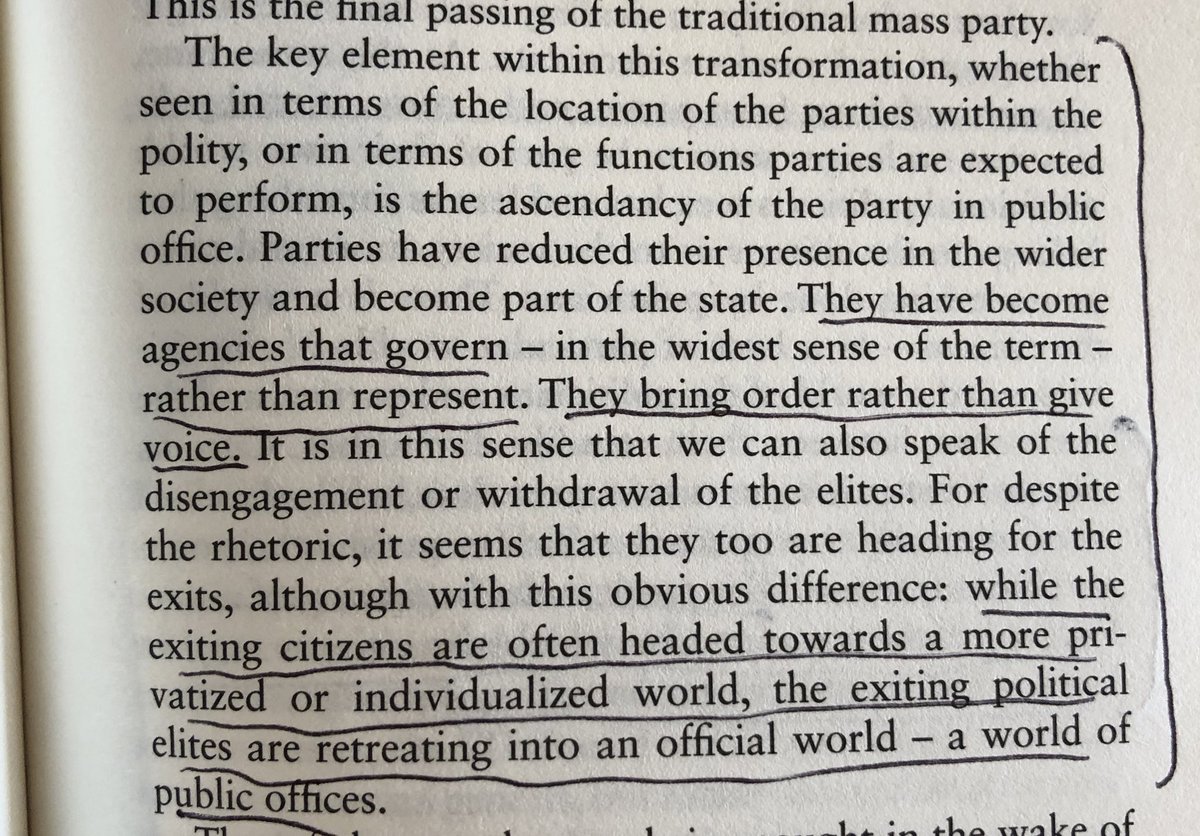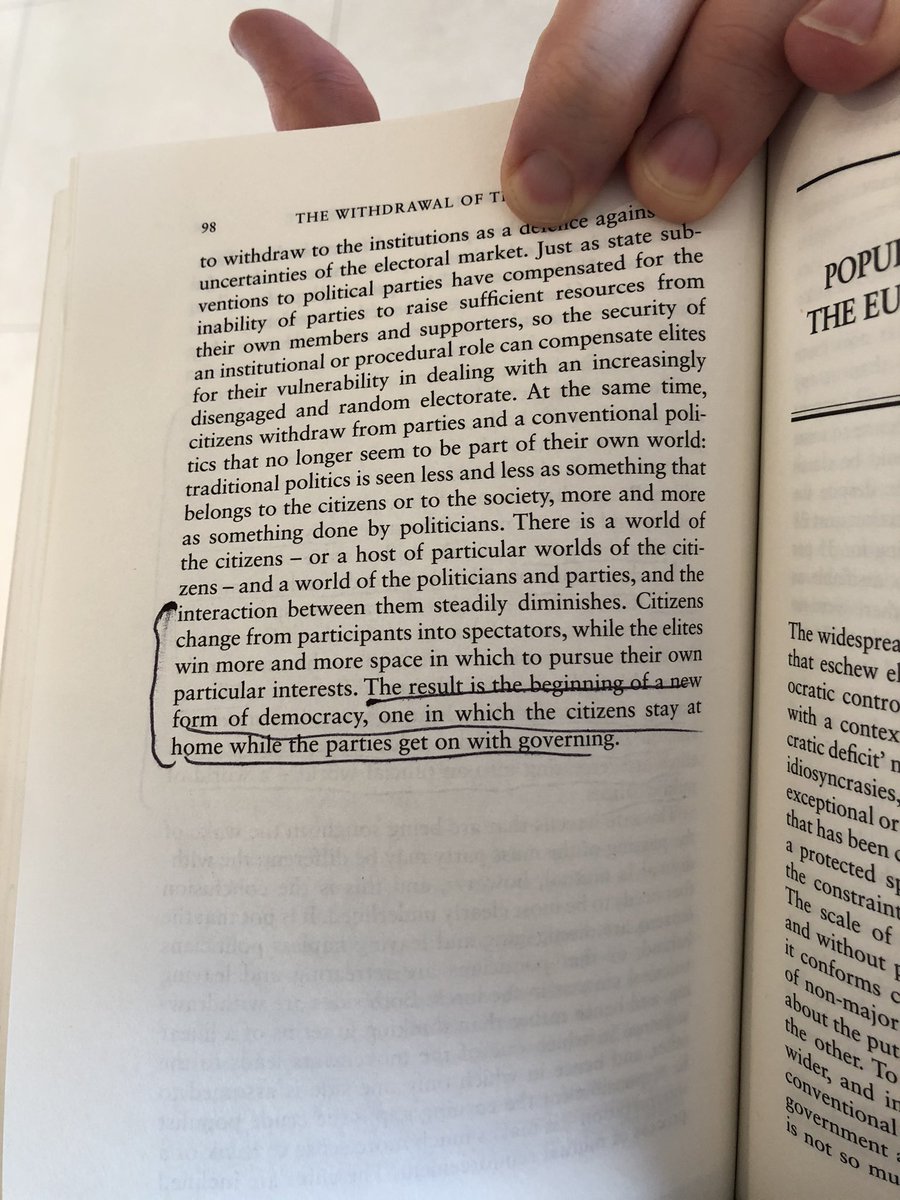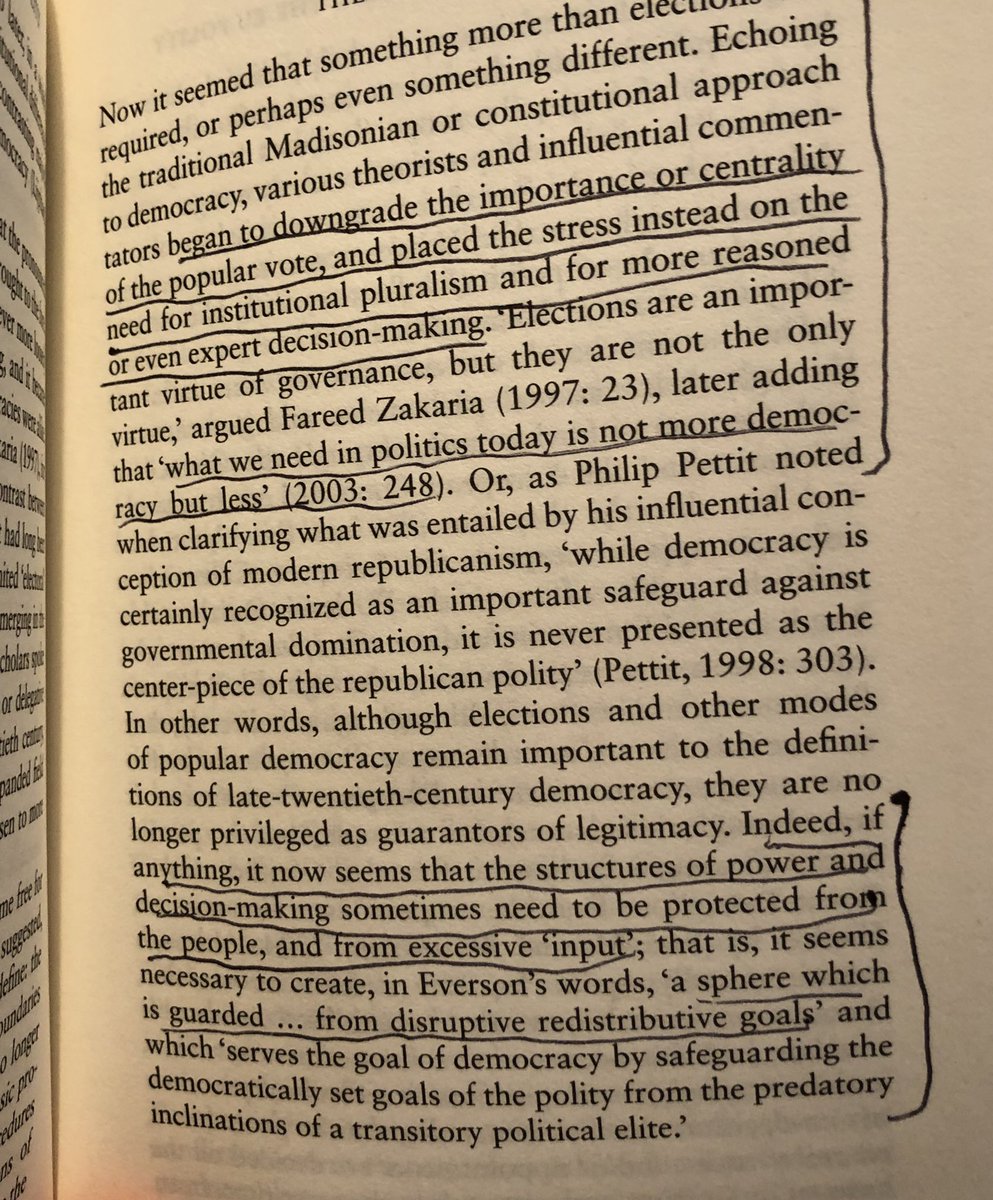
Current reading. A bit academic looking but every book on the decline of liberalism and democracy I’ve read in the last few years has referenced it in some form so here goes 
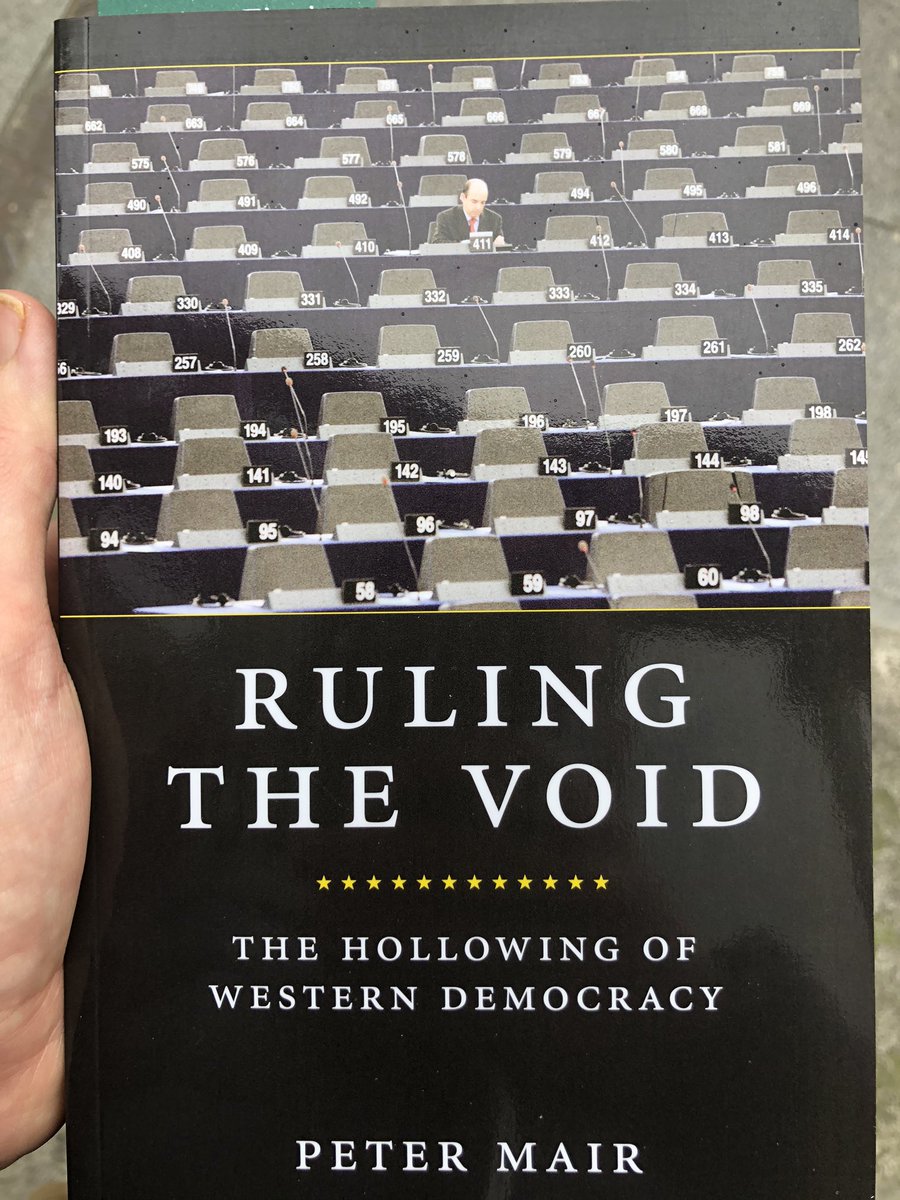
Anti-politics of the 1990s - not populism, but taking important decisions “out of the hands of politicians and passing them into the control of non-partisan, objective experts”. Oh how we laughed 
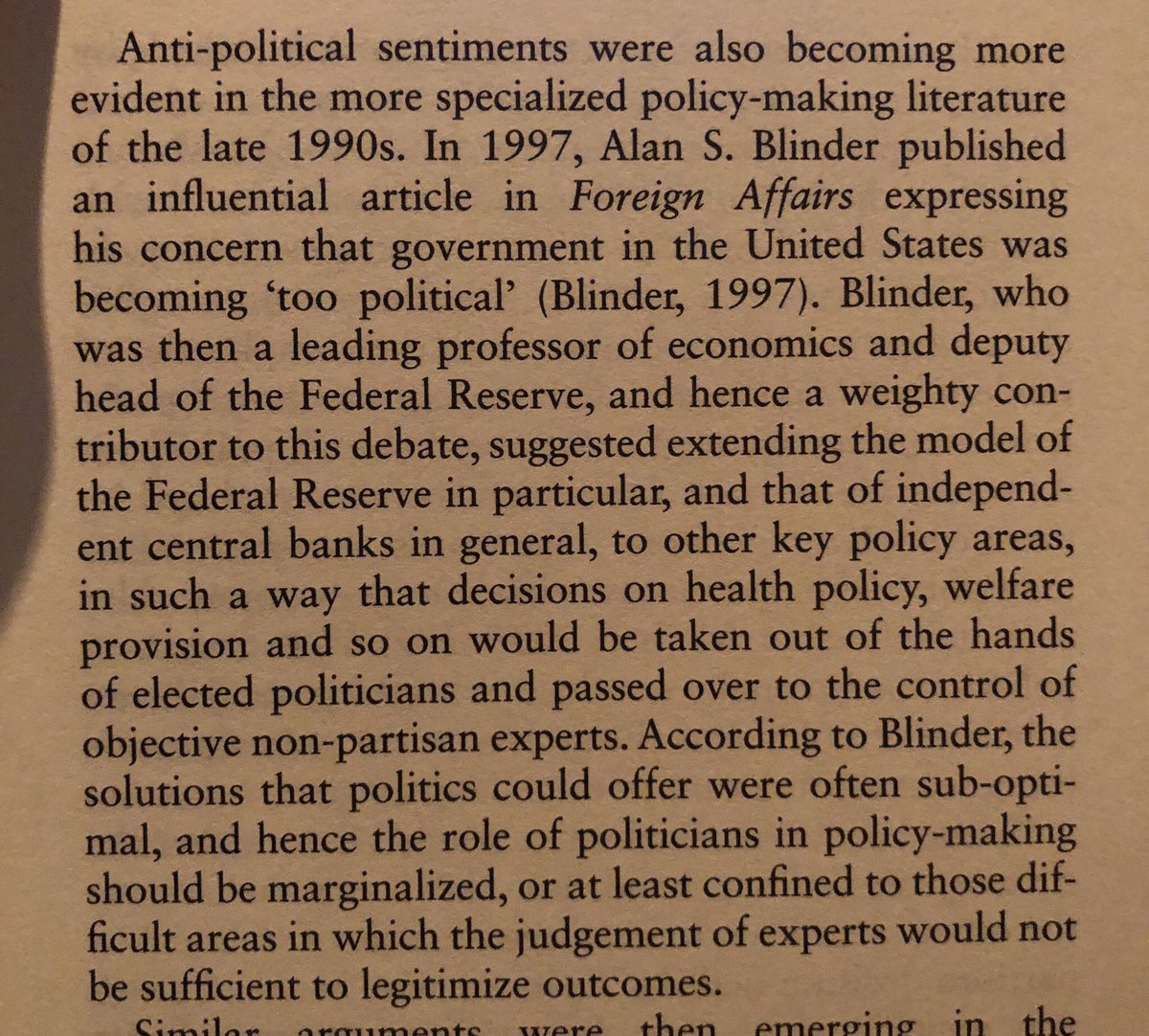
The technocrat protects democracy by removing important sensitive functions from the clumsy hands of democratically elected politicians 🙃 
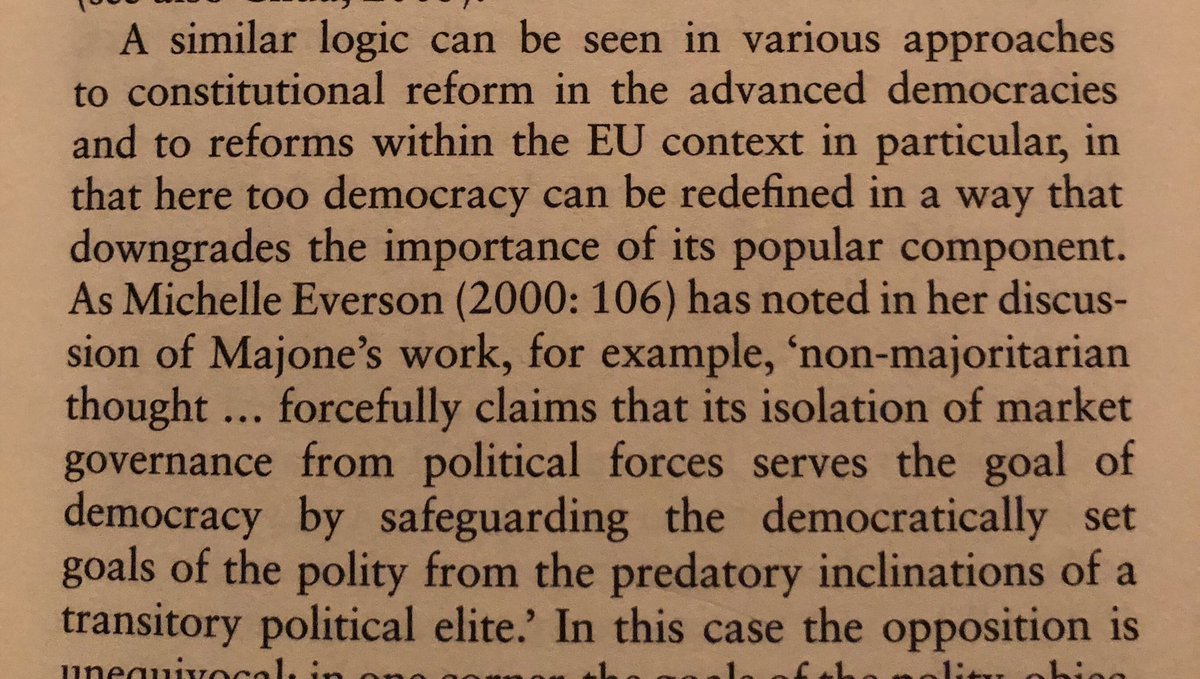
This is so insightful. “Parties no can no longer adequately serve as a base for the activities and status of their own leaders... they are increasingly used as a stepping stone to other positions... the zone of public engagement is being evacuated” 
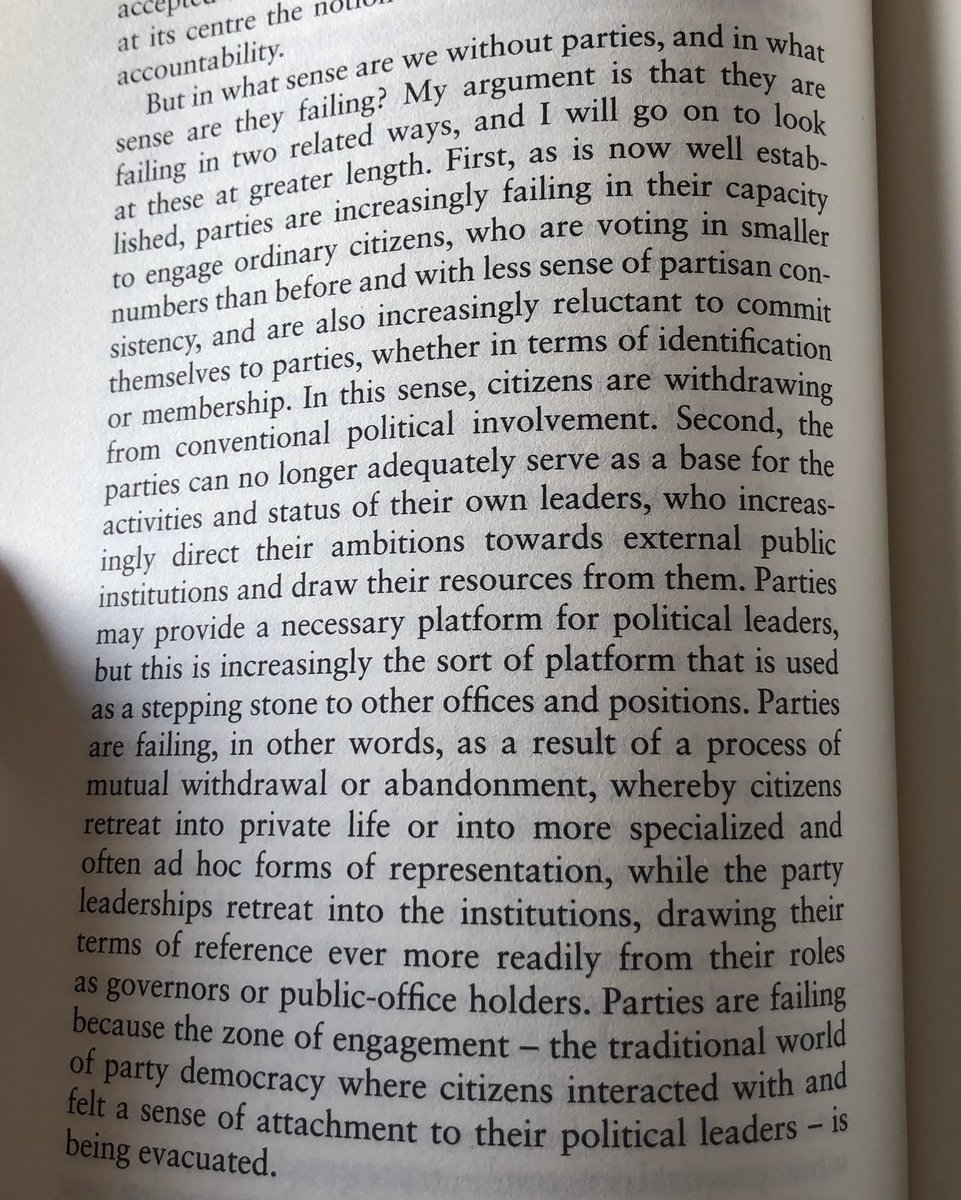
I feel like Nigel Farage could have written this if he was a politics professor. “Elections have less practical effect because the working, effective part of the constitution is steadily being located elsewhere” 
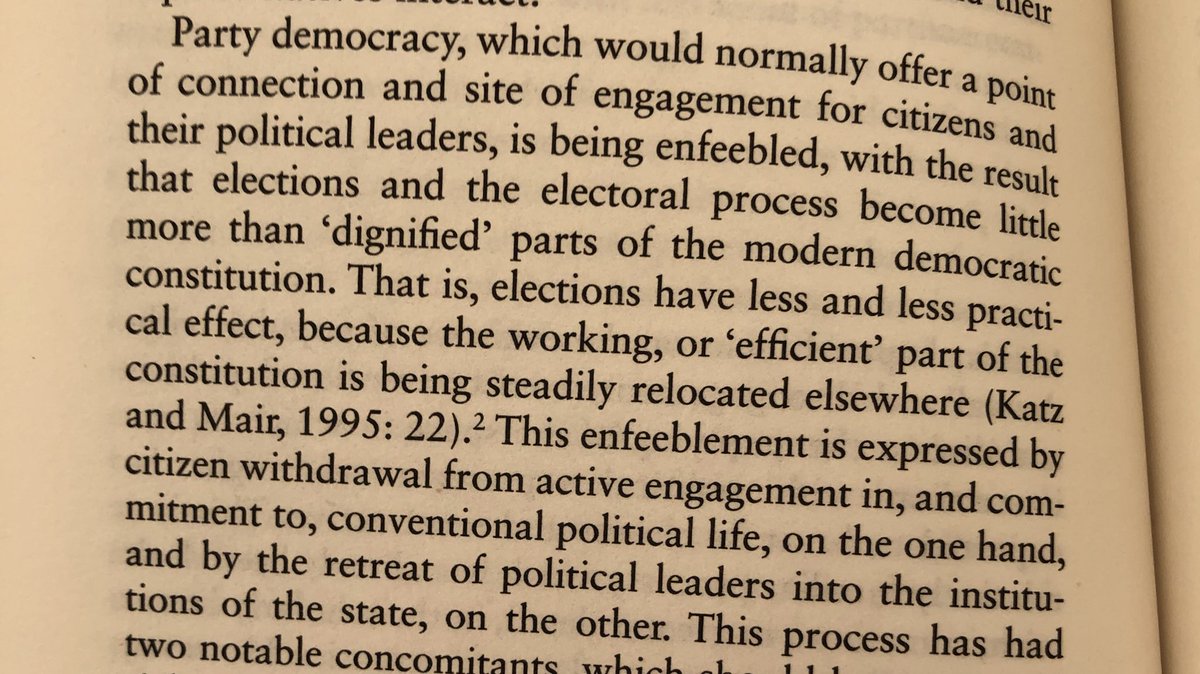
Fewer people participate in party politics meaning they only think about issues short term and in a destructured way, usually the instant before they vote- this affords “more scope to the media to play the role of agenda setter” 
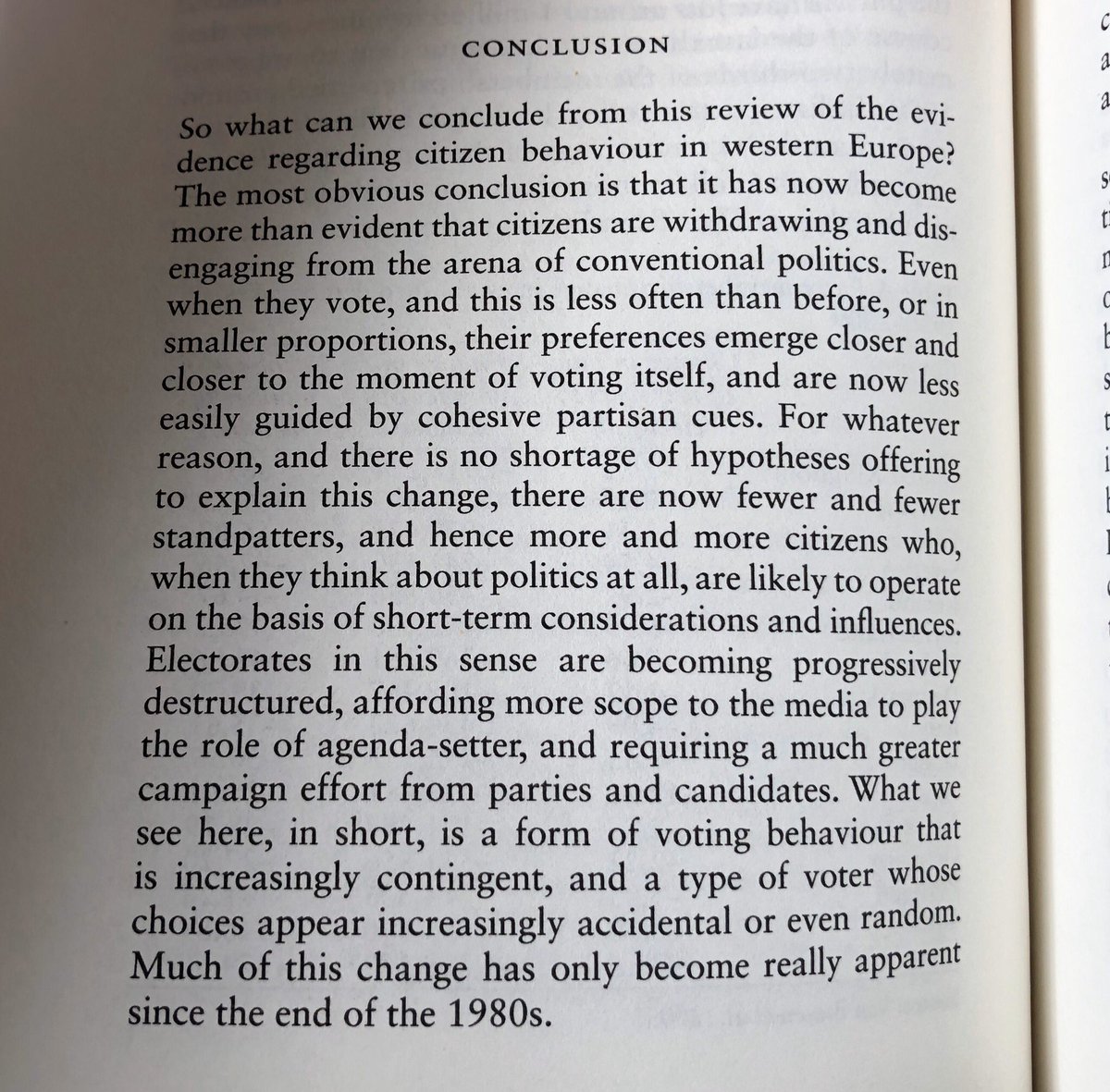
As media has become something you participate in rather than simply watch, politics has followed a reverse trajectory (not sure I fully agree with that) 
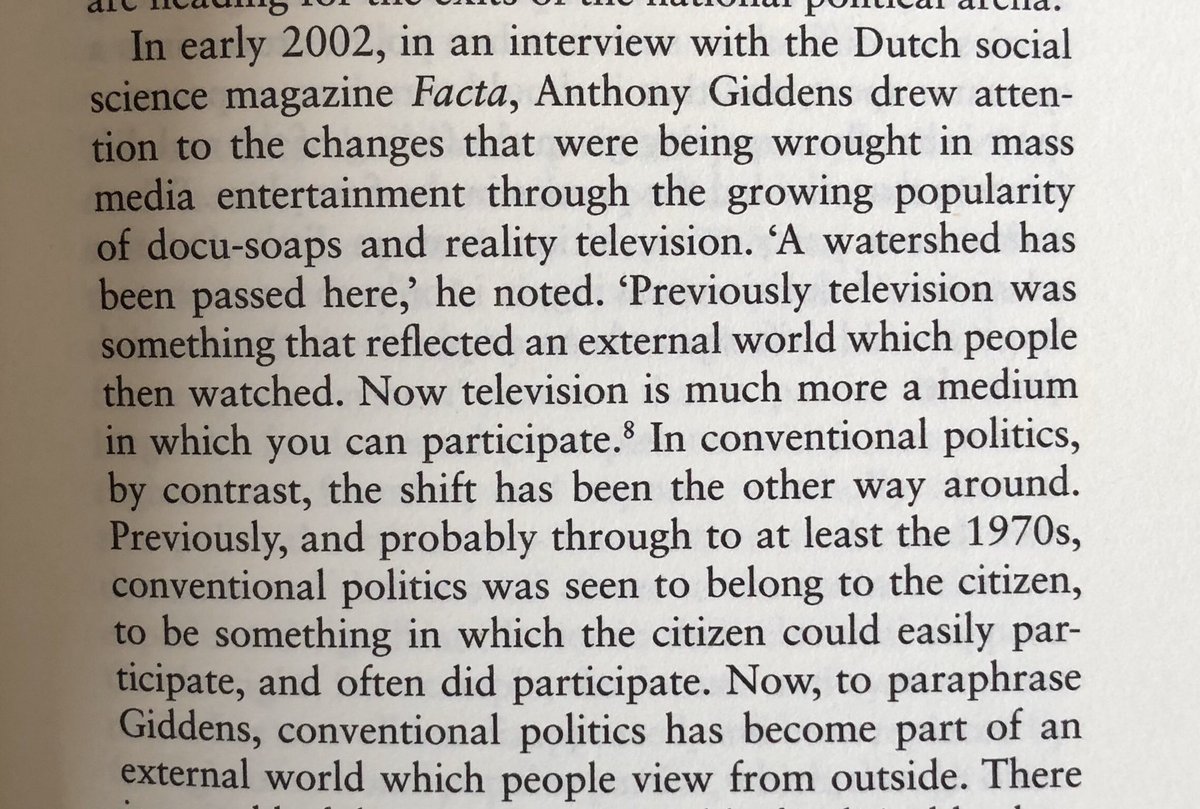
“When mainstream party competition matters little for the substance of decision-making, it is only to be expected that it should shift towards an emphasis on theatre and spectacle” - Peter Mair, Ruling the Void
Ideal conditions for party government- this implies a level of direct answerability to voters I definitely don’t recognise from modern life 
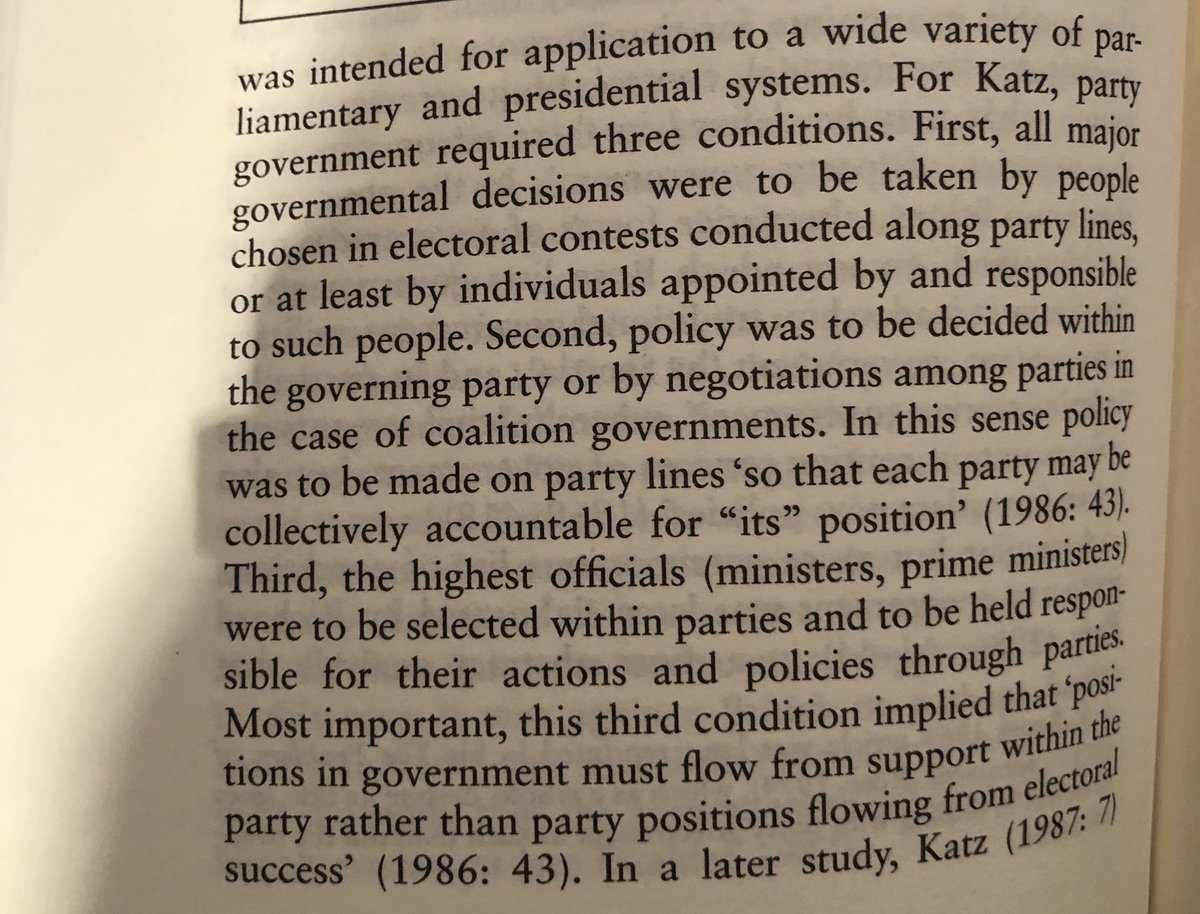
As a result of globalisation (and in a European context, the EU) “parties are less able to offer clear policy alternatives to voters” 
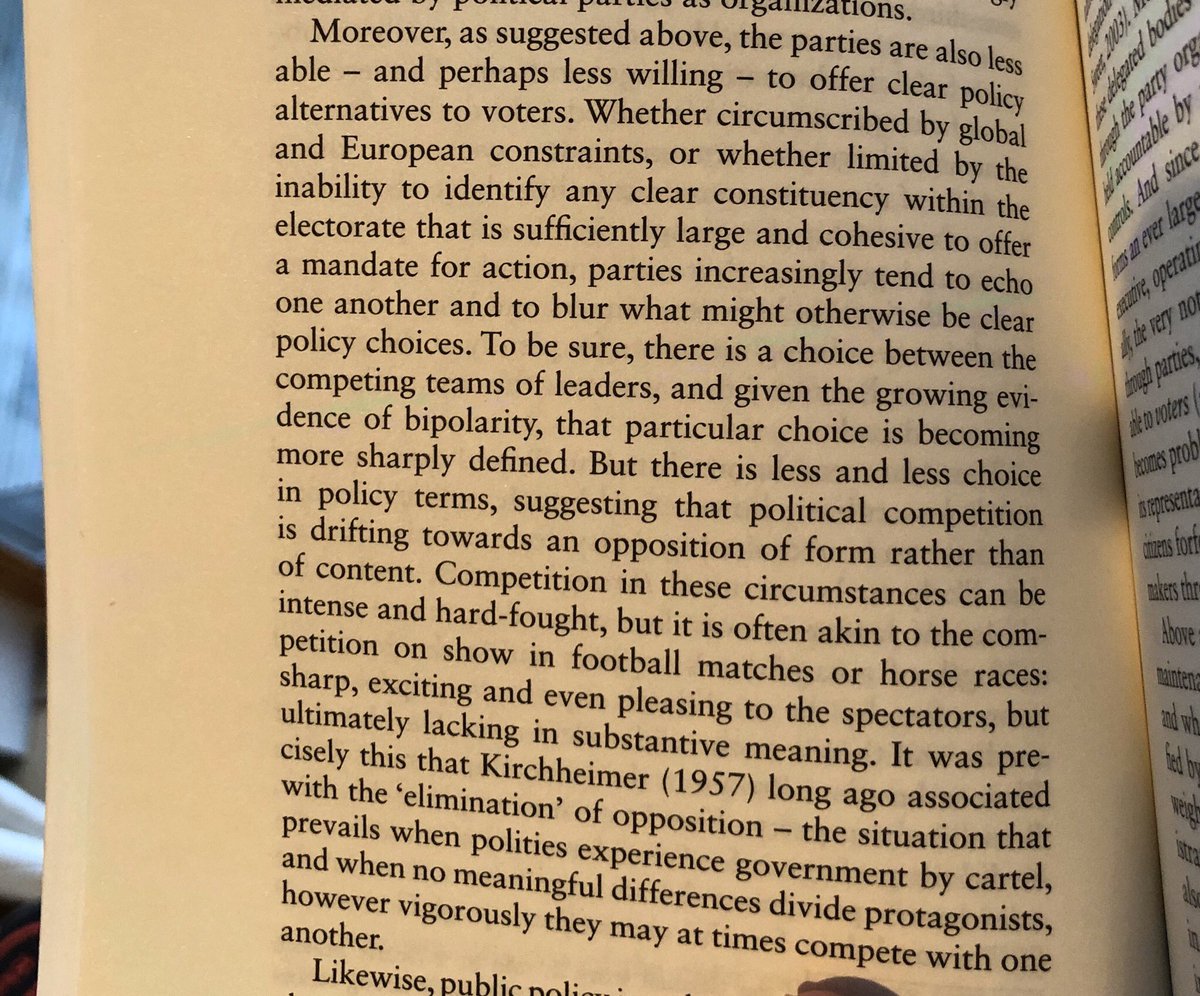
One way the book has aged quite badly is it doesn’t (or hasn’t so far) contemplated that cultural issues, rather than technocratic or administrative ones, could be a source of conflict in democracies. He’s a bit technocratic himself
To paraphrase- Just as citizens retreat from the public sphere so too do politicians and party leaders, away from the people and to the closed world of governing institutions 
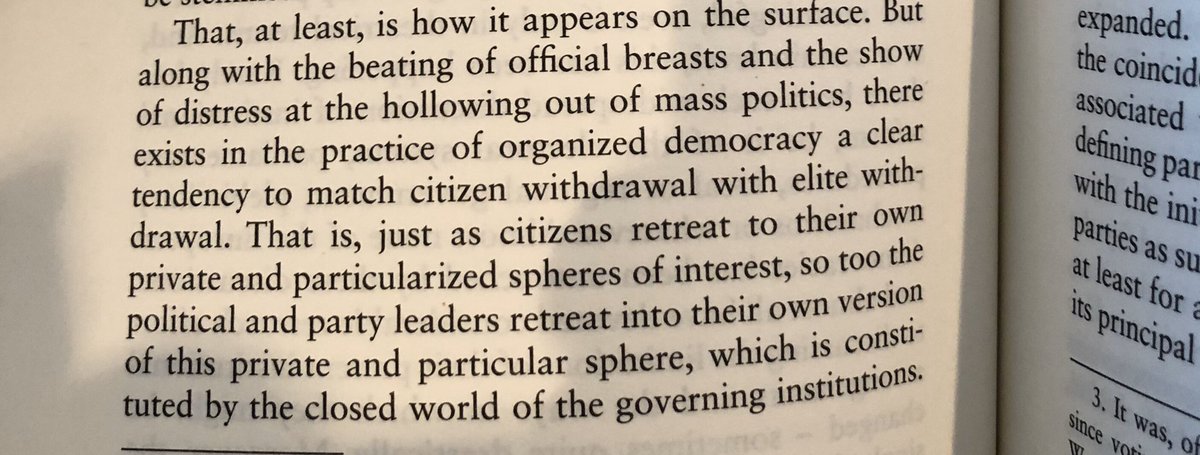
Interesting comparison here- he links Ireland and the US as places where “class structures failed to sustain a major socialist party” 
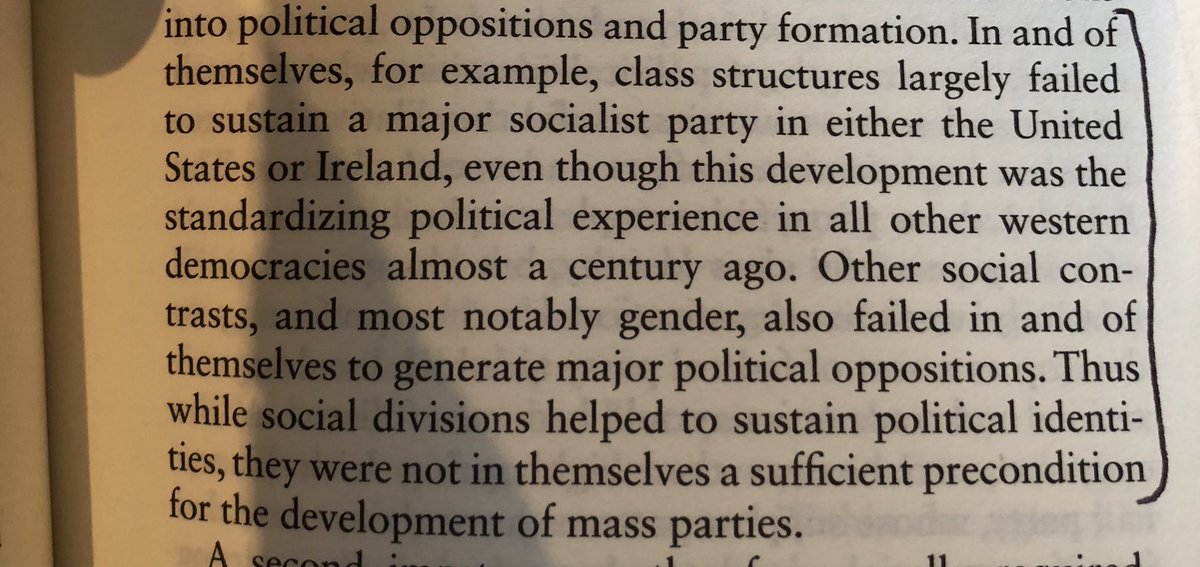
Another interesting comparison, or contrast- Fianna Fáil and the UK Labour Party as organisational opposites 
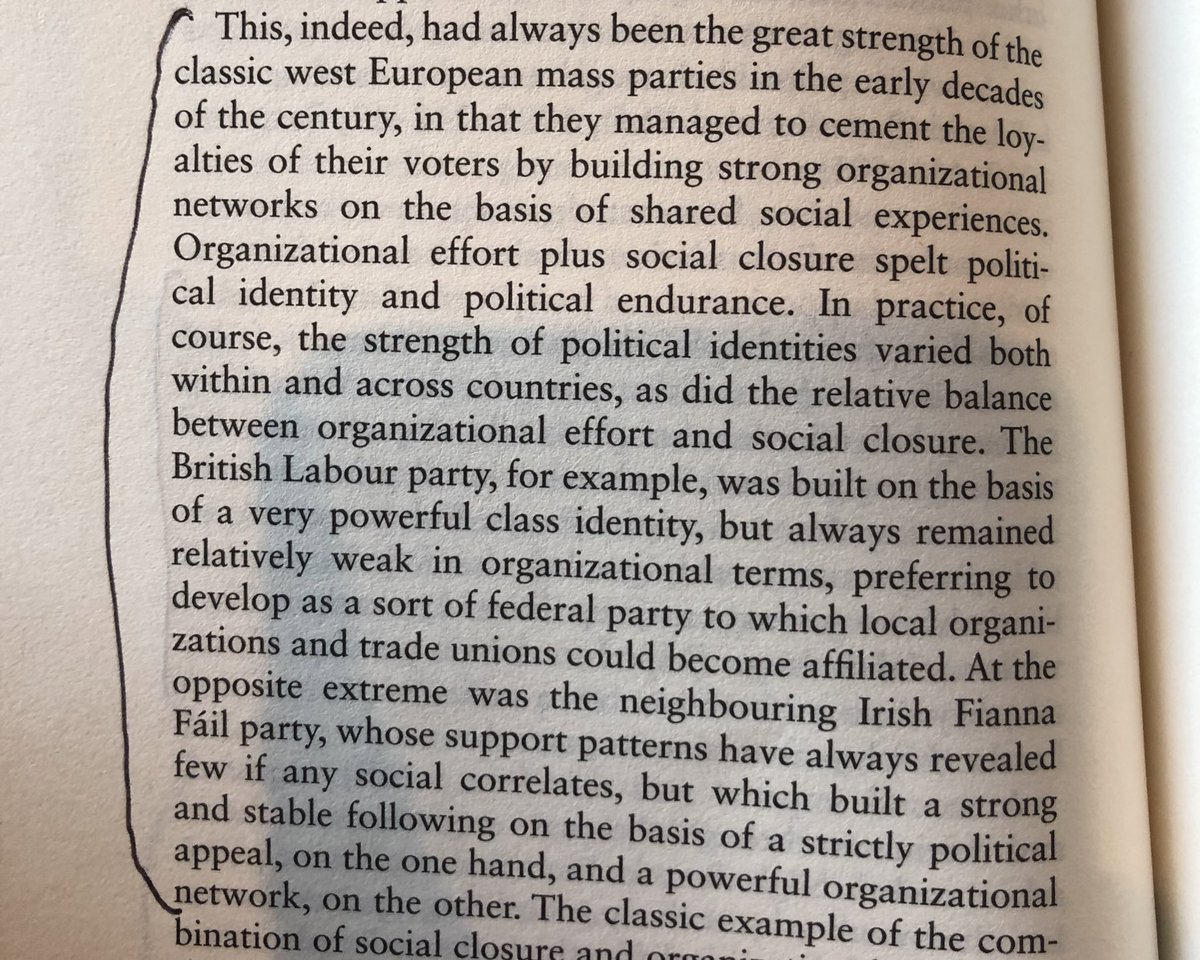
“The voice of the ordinary voter is at least as relevant to the party as that of the active party member, and views of focus groups more relevant than conference delegates” 
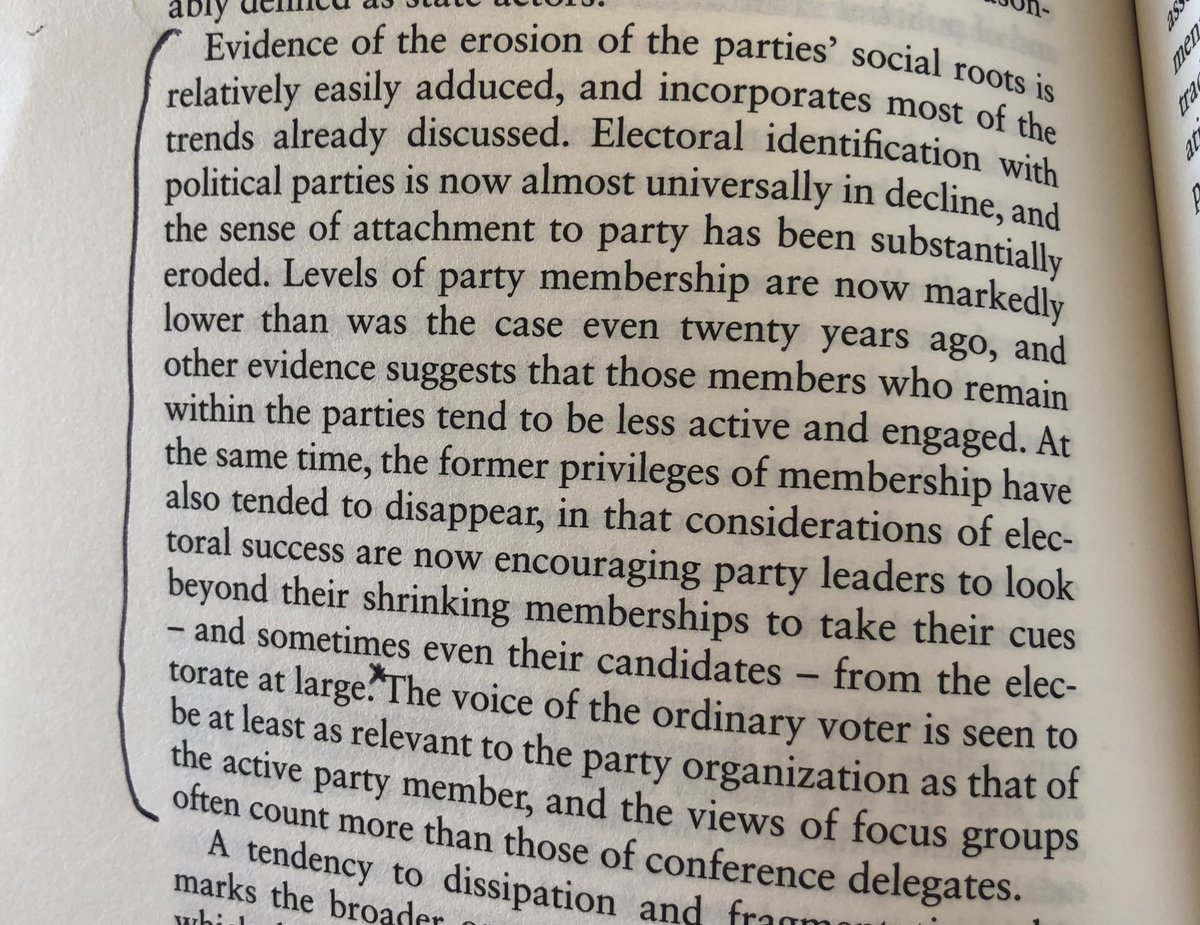
Since a large amount of decision making and authority is outsourced to “neutral” “expert” bodies beyond the reach of voters, parties vie to be administrators of the status quo rather than representatives- and true political opposition comes from outside this system 
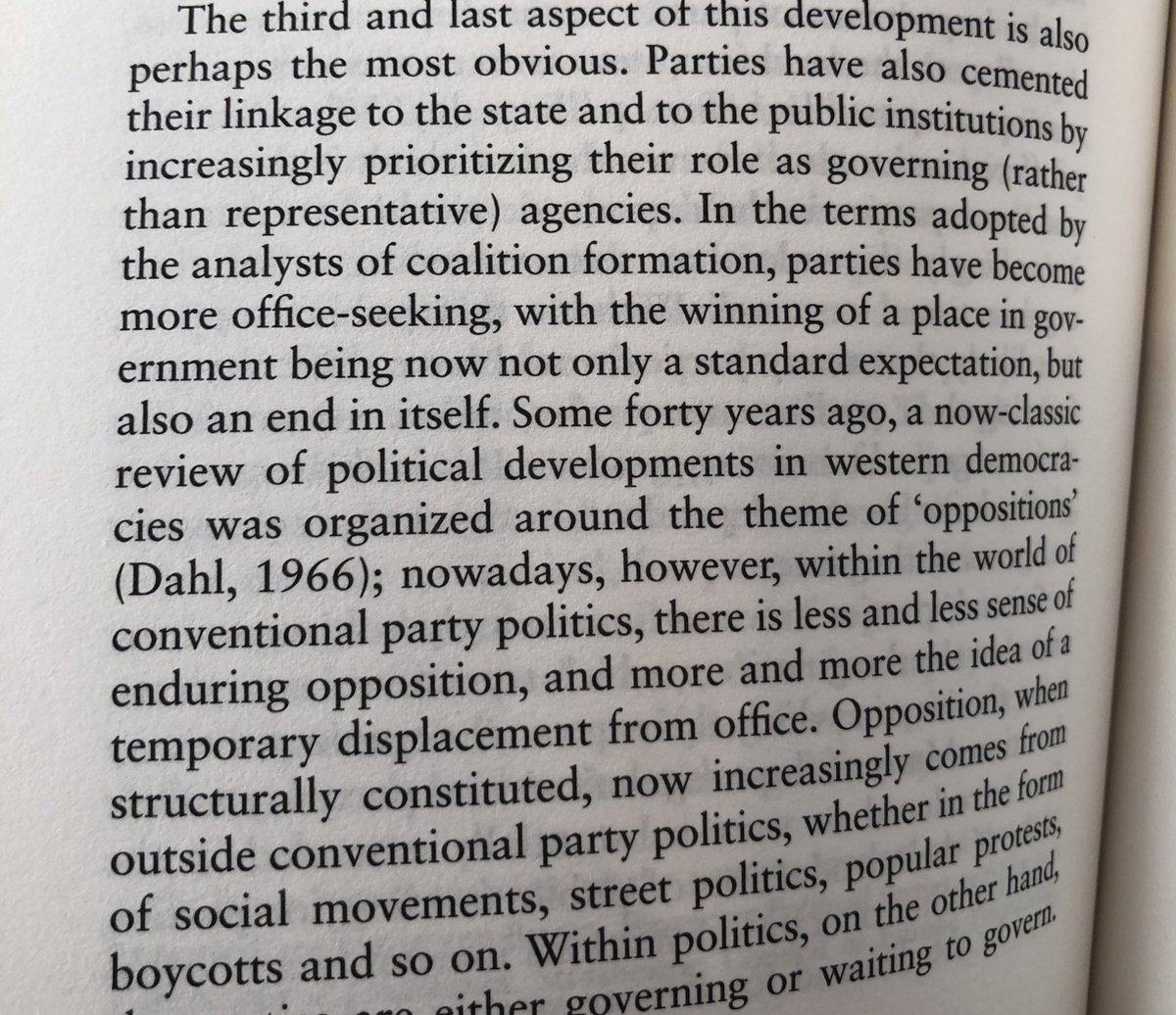
This helps me understand Ireland a lot.
Gordon Brown shoots down a proposal from his party. This emphasises that politicians and parties become “government’s representative in society, rather than society’s bridgehead in the state... the politician as spin doctor (for the status quo)” 
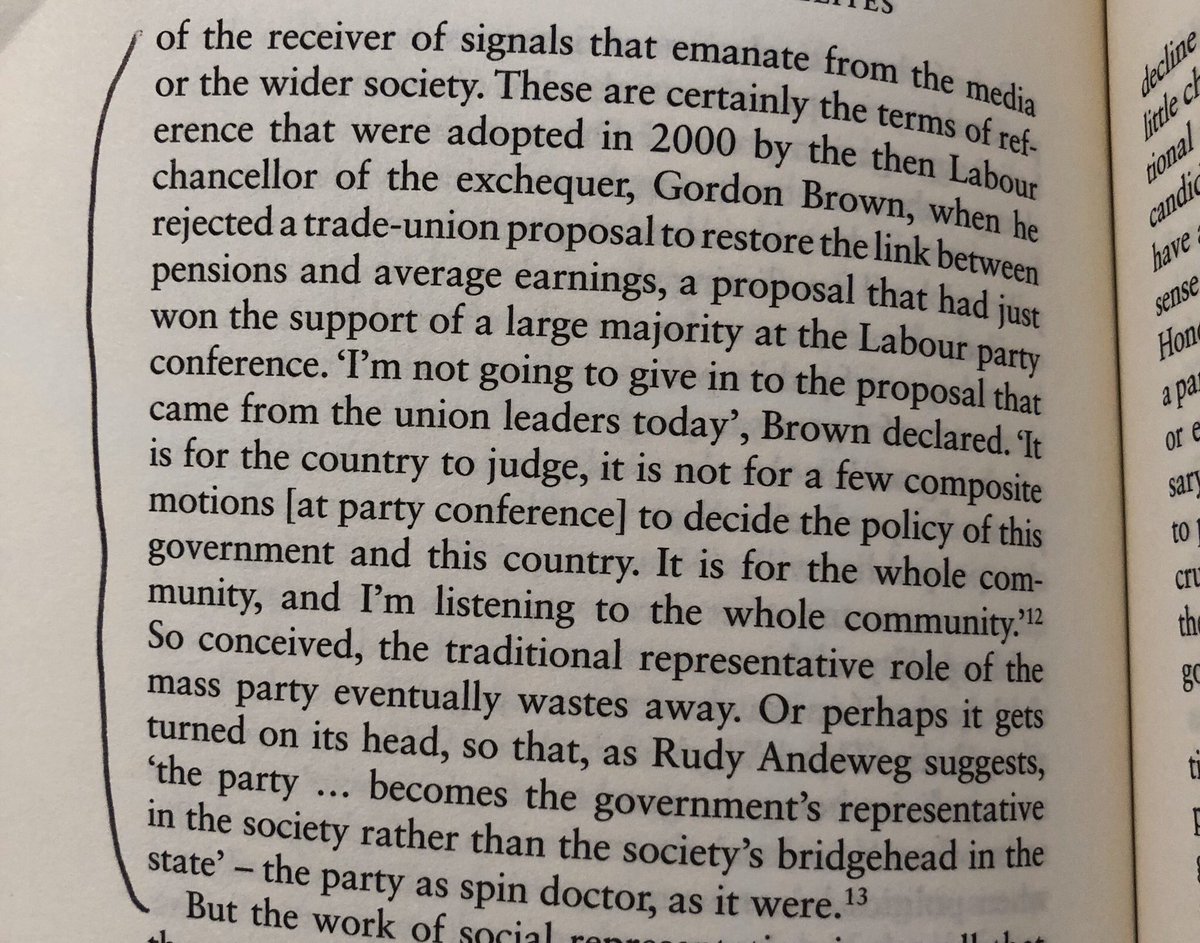
Parties may be useless and identical but don’t worry- their patronage function as ladders for the ambitious climb and gain power is more important than ever. Great 
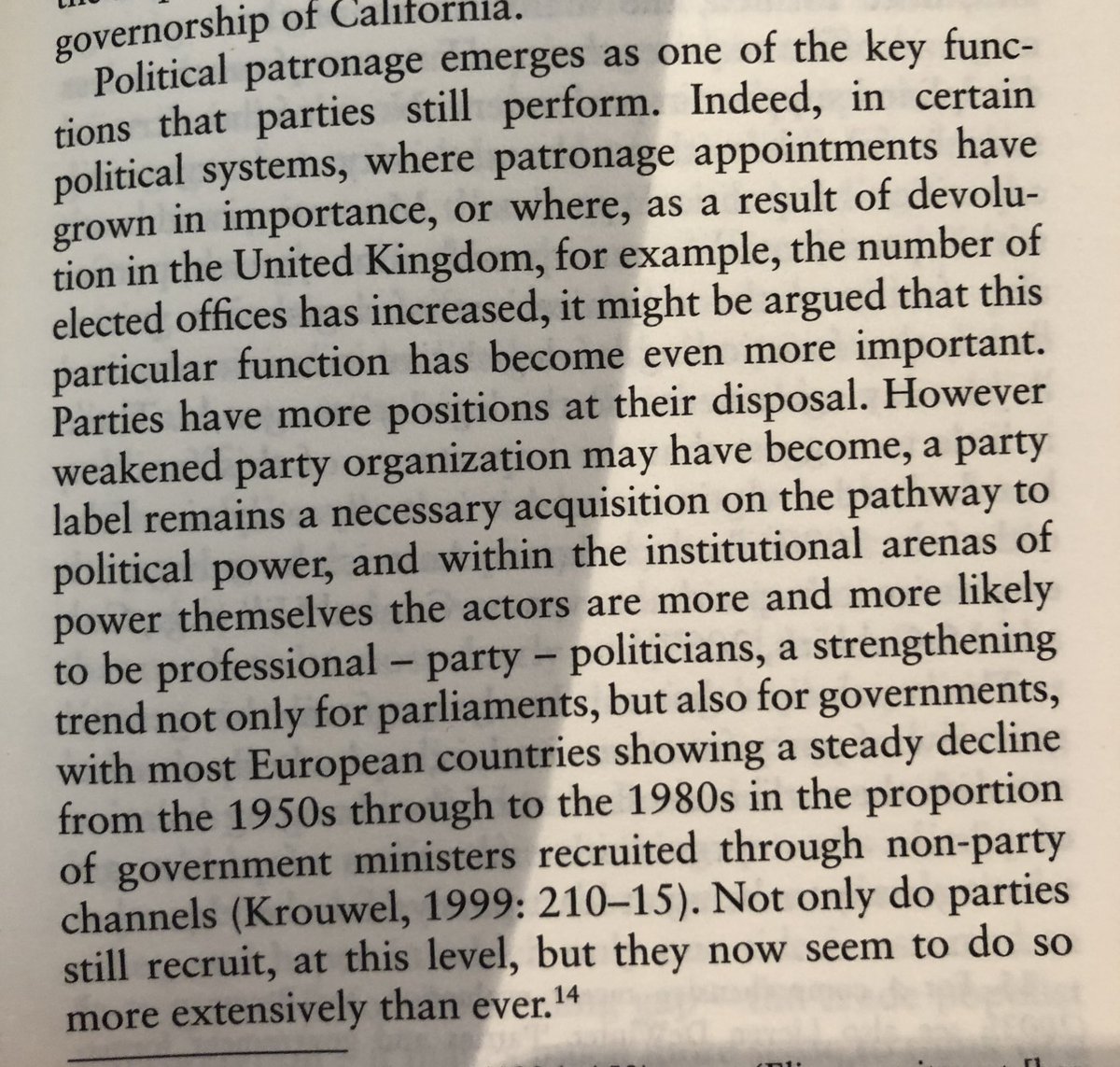
The EU as a “political system constructed by national leaders as a protected sphere in which policy-making can evade the constraints imposed by representative democracy” 
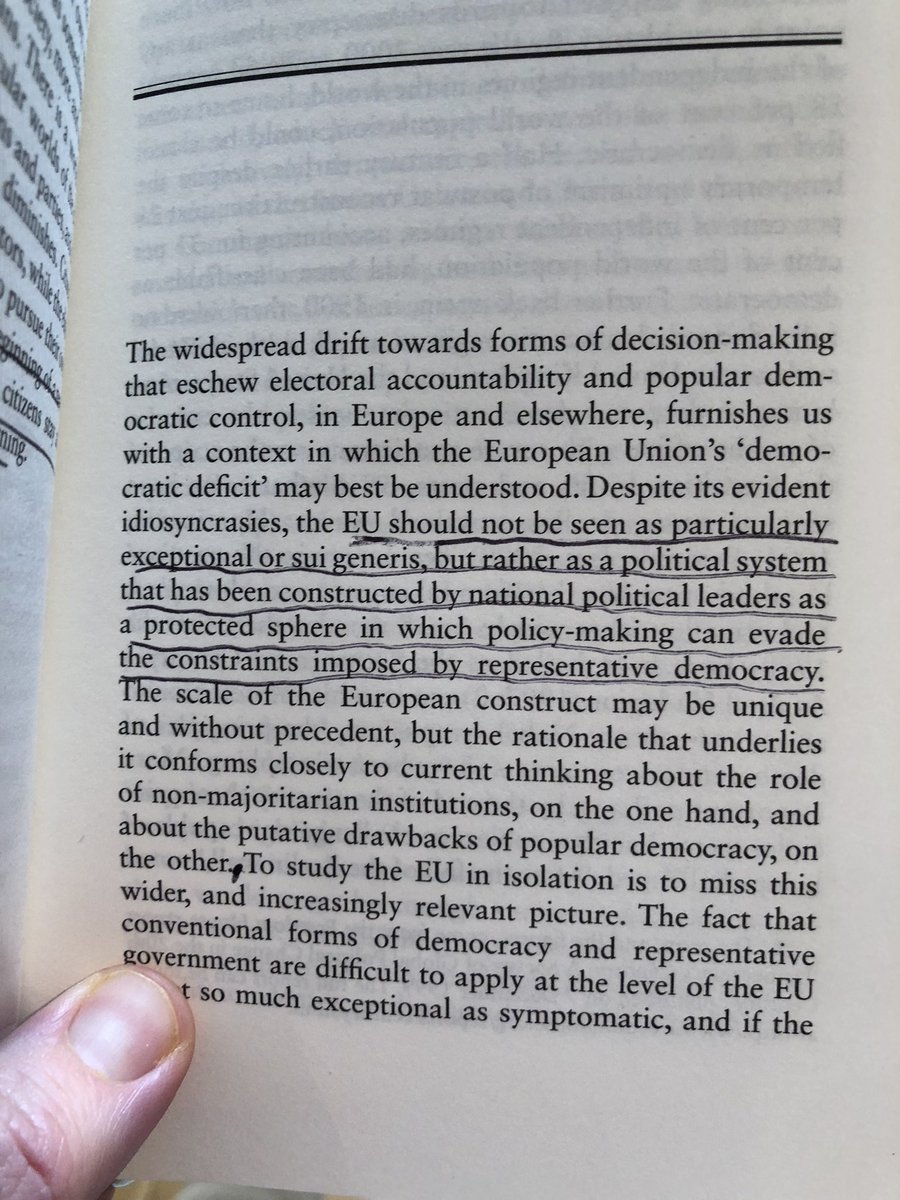
In the 90s political theorists began to describe kinds of democracy in which “decision-making needs to be protected from the people, from excessive input...” to facilitate “more reasoned, expert decision making” 

He describes how he believes the functioning of the EU evades democratic responsibility *by design*- hard to summarise 

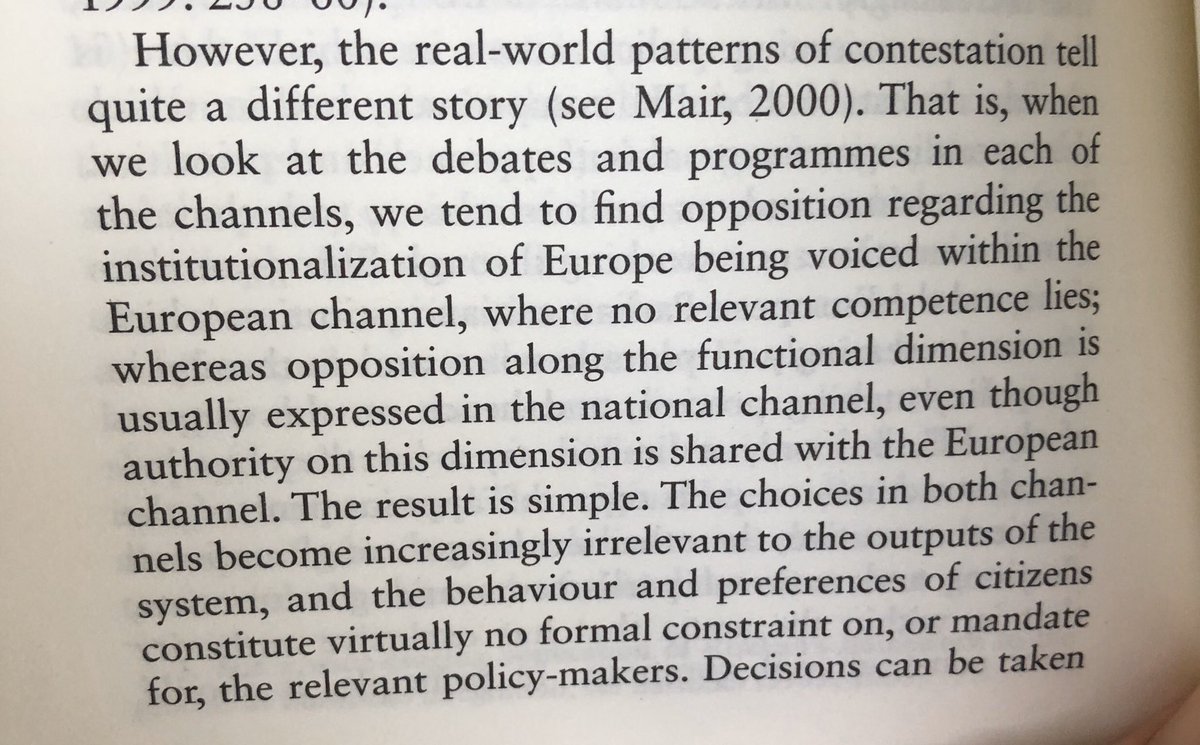
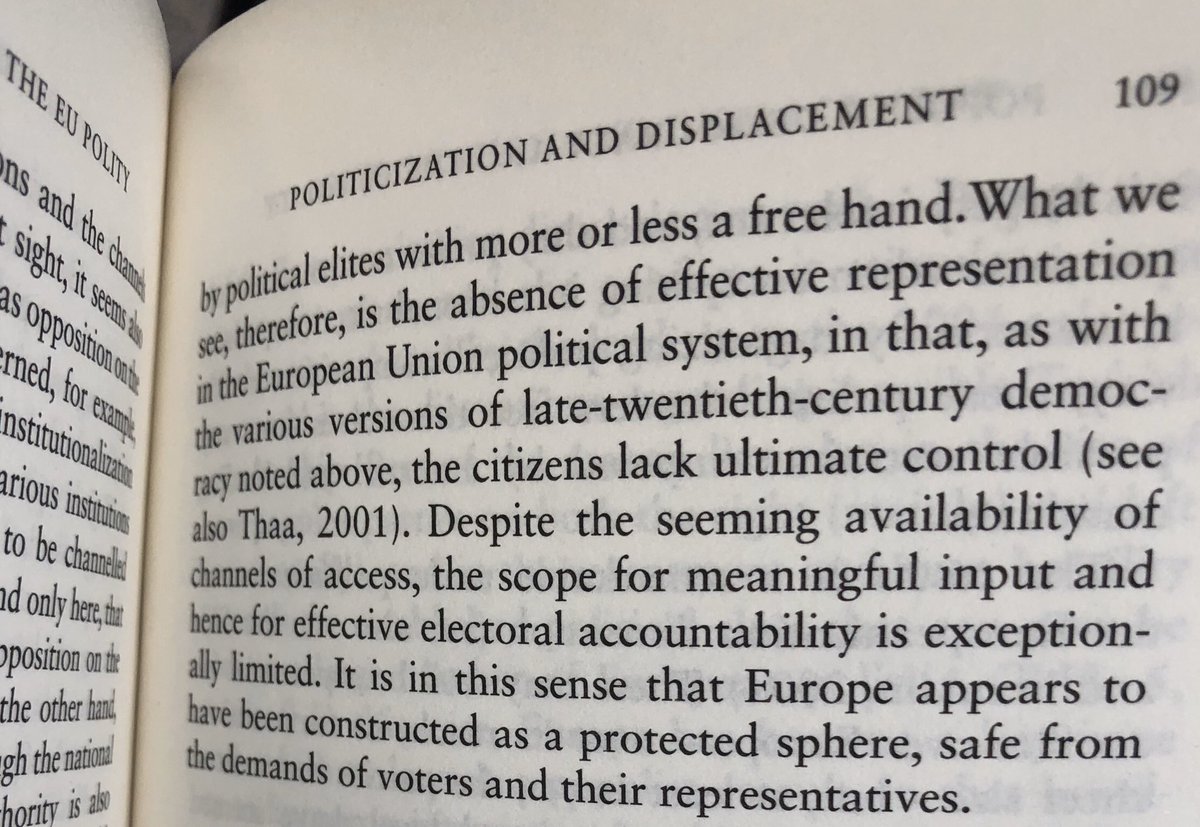
The reluctance to talk about EU integration at a national level will eventually present a political opportunity for someone. “You only had to listen” etc 
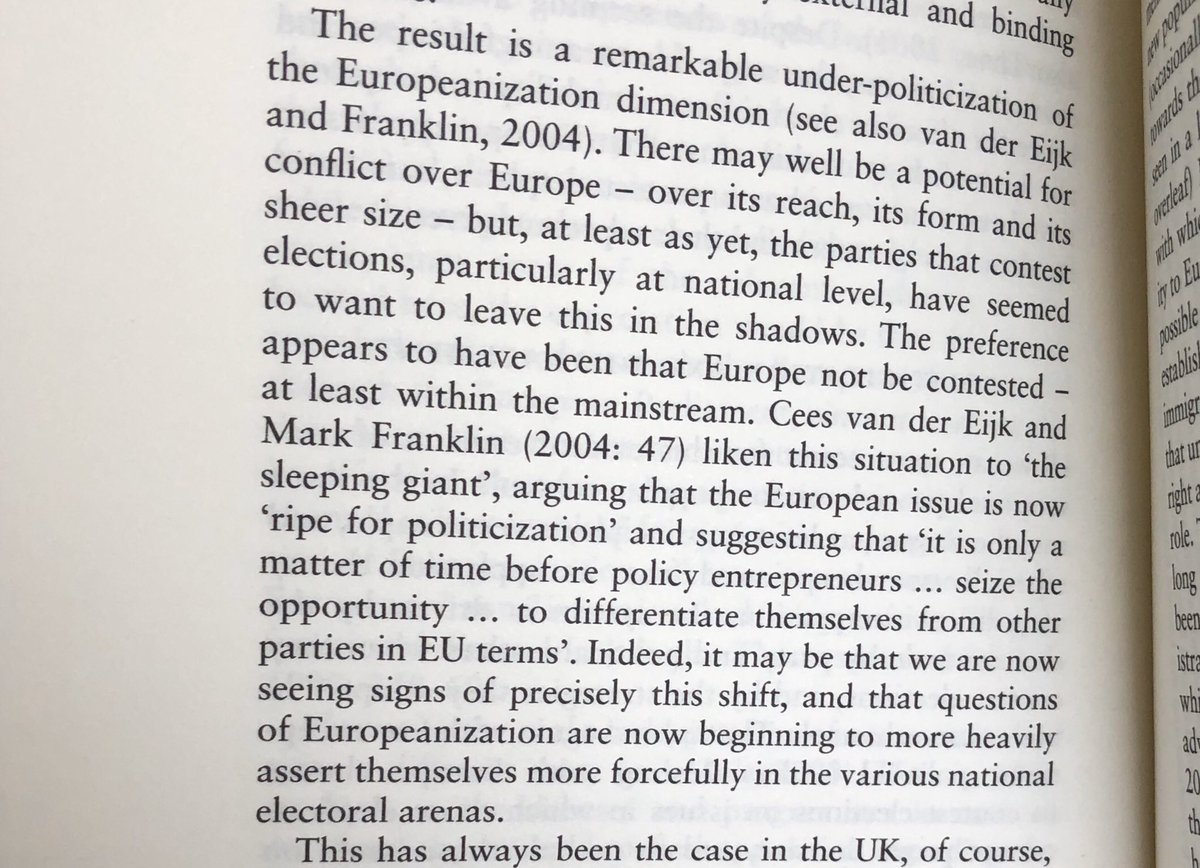
Great quote from Kenneth Tynan: “they took the advice of people whose advice they had been used to following”- sounds like Roy Jenkins would have had a future in Irish politics 
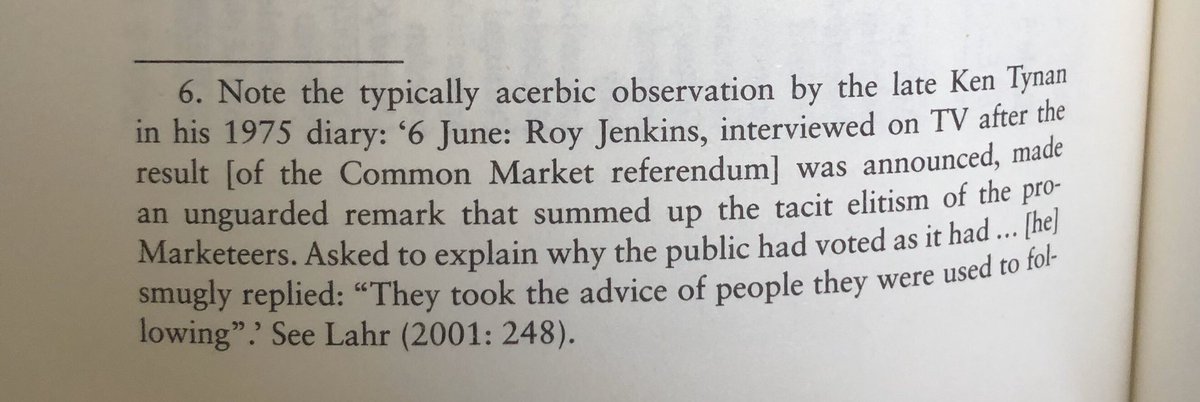
Some beautiful euphemistic language here 😂 “democratic decision making proves marginal to the European Polity at the Supranational level” hmm what are you driving at 
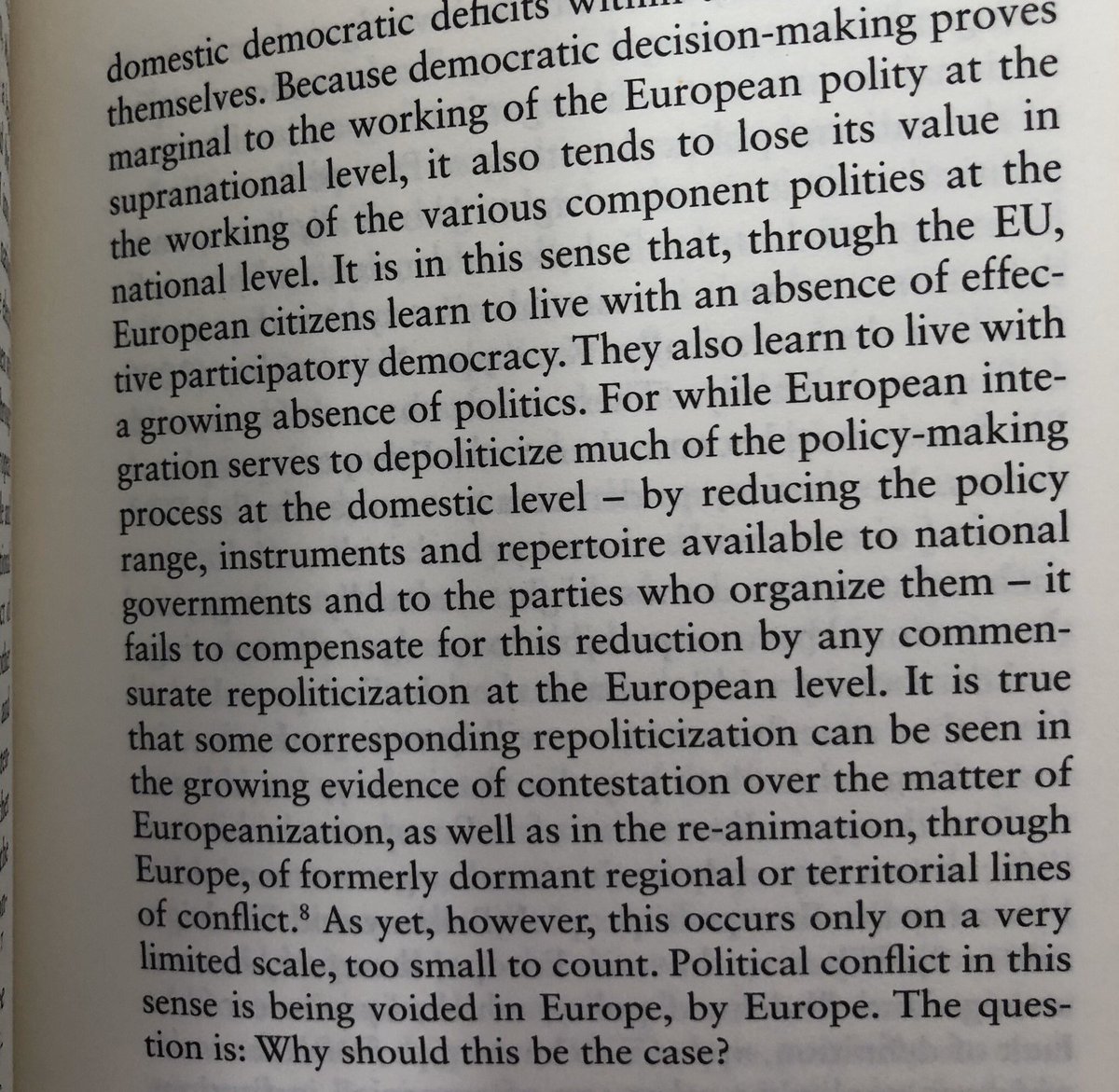
“There is no chance of a possible EU democracy because there is no European people, no demos. No demos, no democracy- quite simple” 
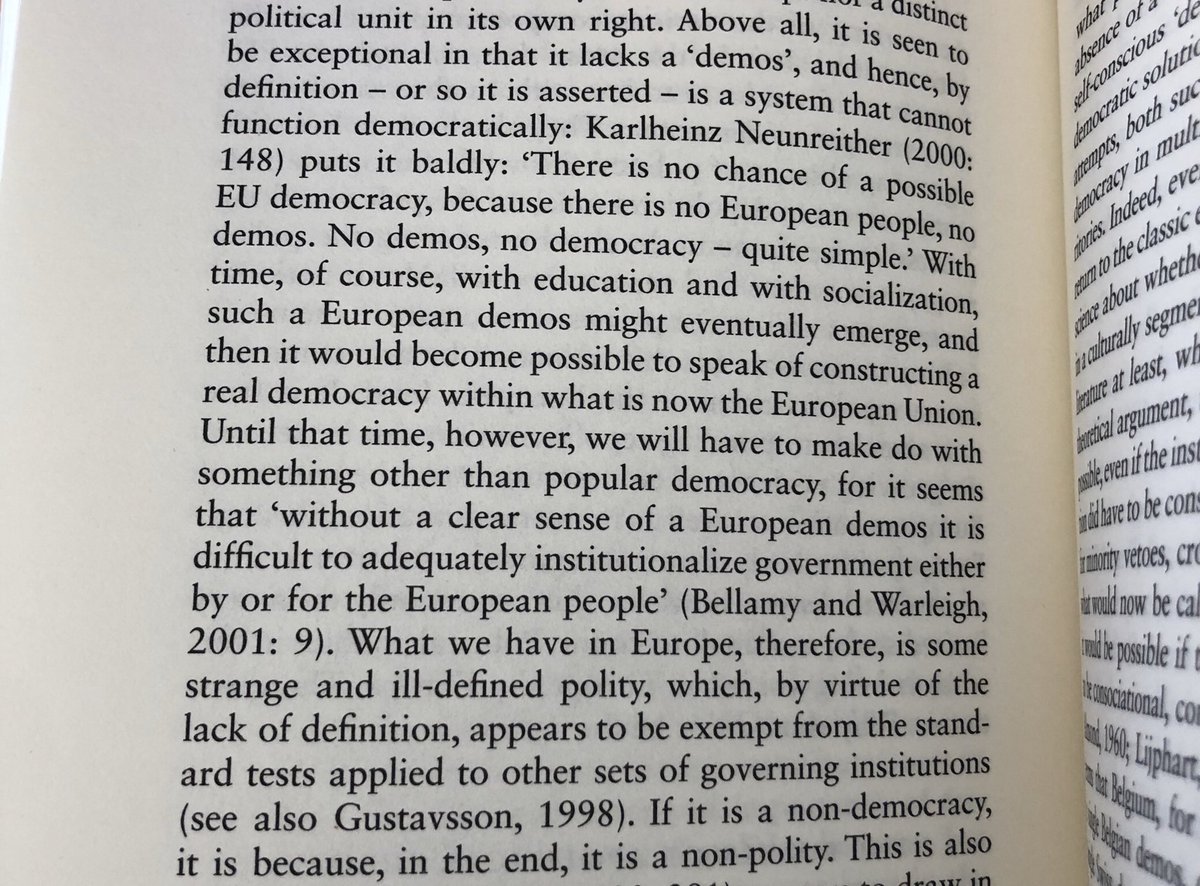
He goes on to say that the counterpoint is that there are countries without a single demos which clearly can function democratically such as Switzerland, Belgium and uh NI. There’s too much to unpack there in a tweet. Will say it reveals a blind spot of the book/
/ imo, which his understanding of intangible questions of culture and identity. Probably “gap” is a better word than blindspot.
He ends by sincerely saying that the EU is not undemocratic per se in that it allows and courts involvement by all kinds of bodies and representatives groups - just that it is “more or less impermeable as far as voters are concerned” :/ 

He refers to national government as regional “branch offices” of European government. He uses the term ironically but I think it’s a sincerely good description of the Irish government/ political class relationship with the EU
“The EU is the place where economic reforms that most of the individual members want, but can’t do politically, are implemented” 

Done. It’s very academic and doesn’t contemplate cultural issues but other than that - highly recommended
• • •
Missing some Tweet in this thread? You can try to
force a refresh
